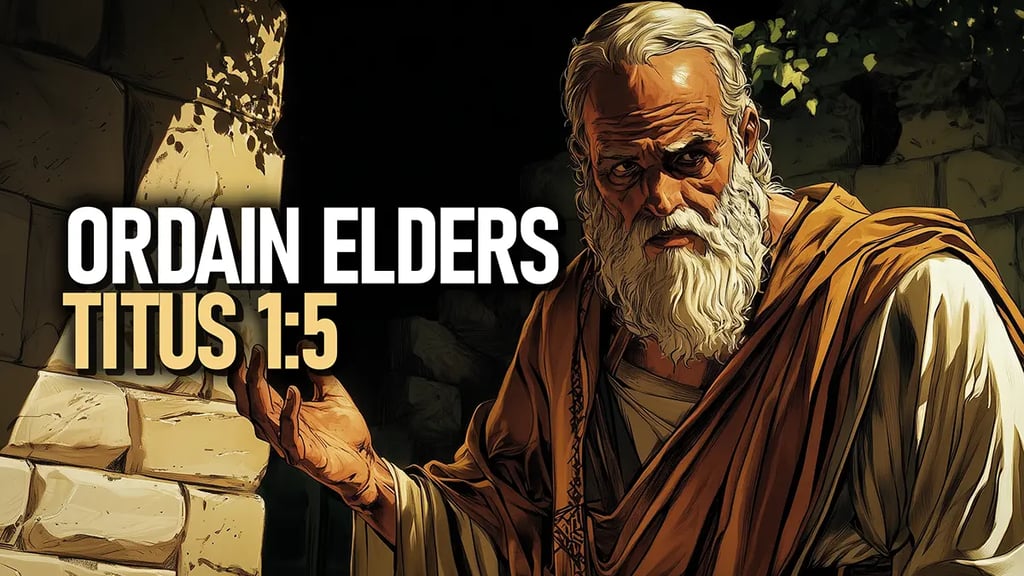Ordain Elders - Explaining Titus 1:5


Titus 1:5
Titus 1:5 – For this cause left I thee in Crete, that thou shouldest set in order the things that are wanting, and ordain elders (presbuteros) in every city, as I had appointed thee:
This is a delegation of responsibility, not authority. Paul is instructing Titus to appoint elders (leaders) in local churches. It shows an example of apostolic delegation for establishing church leadership, but it doesn’t explicitly prove apostolic succession in the sense that successors would have the same authority as the original apostles.
The purpose here was to safeguard sound doctrine and order within the church, not to pass on an apostolic office. Titus’s role emphasizes establishing church structure rather than perpetuating an office with special authority.
Titus 1:6-9 – If any be blameless, the husband of one wife, having faithful children not accused of riot or unruly. For a bishop (episkopos) must be blameless, as the steward of God; not selfwilled, not soon angry, not given to wine, no striker, not given to filthy lucre; But a lover of hospitality, a lover of good men, sober, just, holy, temperate; Holding fast the faithful word as he hath been taught, that he may be able by sound doctrine both to exhort and to convince the gainsayers.
These passages suggest a structure of leadership and continuation of ministry, not the authority of apostles being passed down.
Elder & Bishop
Presbuteros (elder) and episkopos (bishop or overseer) are used synonymously to describe the same role of church leadership.
Paul begins by instructing Titus to appoint presbuteros (elders) in each city (Titus 1:5). Then, in verses 6-9, he continues with the qualifications for an episkopos (bishop), using both terms in reference to the same group of church leaders. This seamless transition suggests that he views the terms interchangeably in this context.
In Acts 20, Paul uses presbuteros and episkopos synonymously when addressing the Ephesian elders, indicating that the same leaders are responsible for shepherding (pastoring) the flock as overseers.
Acts 20:17 – And from Miletus he sent to Ephesus, and called the elders (presbuteros) of the church.
Acts 20:28 – Take heed therefore unto yourselves, and to all the flock, over the which the Holy Ghost hath made you overseers (episkopos), to feed the church of God, which he hath purchased with his own blood.
Similarly, in 1 Peter 5, Peter also connects presbuteros and the pastoral role of overseeing, further supporting that these terms often described the same office.
1 Peter 5:1-2 – The elders (presbuteros) which are among you I exhort, who am also an elder, and a witness of the sufferings of Christ, and also a partaker of the glory that shall be revealed: Feed the flock of God which is among you, taking the oversight (episkopeō) thereof, not by constraint, but willingly; not for filthy lucre, but of a ready mind;
In the early church, elders and overseers shared pastoral and teaching responsibilities, making it clear that Paul’s use of both terms in Titus refers to a single group tasked with leading and shepherding the church. In summary, presbuteros and episkopos are used synonymously, with both terms describing the same group of leaders responsible for guiding, teaching, and protecting the church.
I created a comprehensive guide covering every topic, with every verse you need, download here. If you would like to support my ministry you can do so by donating here or subscribing to my Patreon.
Grace be with all them that love our Lord Jesus Christ in sincerity. Amen.
- The Christian King


